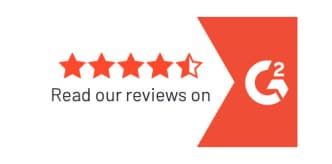Most people know that socking money away in a 401(k) is a good strategy for helping to ensure a more secure retirement. But not everyone understands the tax benefits involved — not just for participants in the plan, but also for the business owners and corporations that sponsor the plans. And although small-business owners stand to gain less than larger businesses in the form of tax breaks, these gains are often more valuable to a small business because they have less flexibility in their budgets.
Here at 401GO, our goal is to help businesses sponsor retirement plans for their employees so that more workers have more secure futures. That’s why we want everyone to understand the tax benefits of retirement plans.
The Tax Benefits of Retirement Plans for Small Businesses
Historically, small businesses with 401(k) plans have been few and far between, leaving a lot of workers with no access to retirement savings vehicles. The problem was so widespread that state governments have taken it into their own hands, mandating that many businesses now provide access to a retirement plan to their workers, and offering a free Roth IRA option for those that want it. This is definitely a good thing, it’s just not a very good thing, because these workers already have access to IRAs — the state plans just allow for automatic contributions that come directly from paychecks. So many of these workers still don’t have access to 401(k) plans.
But if you’re a small-business owner, you know the reason most small businesses weren’t offering their employees a 401(k) plan wasn’t due to a Scrooge-like management style — it was because of the hurdles they had to clear to get a 401(k) off the ground.
If you have ever talked to a brokerage firm about starting a 401(k), you know what we’re talking about. Small-business owners are not preferred clientele at brokerage firms, and it’s hard for these startups to afford all the fees associated with sponsoring a 401(k) — and keeping it running. That’s why we started 401GO — setup is easy and fees are minimal.
But of course some fees are necessary, because everyone needs to pay the costs associated with whatever goods and services they provide. So even though our fees aren’t high, it is still an expense for small-business owners. And that’s why we want you to understand that some of these costs are offset by tax breaks for small-business owners. What kind?
· A 401(k) is a deductible expense: Because your 401(k) plan benefits your employees, you can deduct any expenses related to it from your taxes. So any and all startup costs, ongoing costs, annual fees, fees for services of professionals such as human resources professionals, accountants, auditors, CPAs — all of these are deductible. Heck, even matching contributions are deductible. Not all 401(k) sponsors offer a match, but when you consider the benefits (employees value it and you can write it off), it seems like a no-brainer.
· Tax credits for new plans: Your company may be eligible for tax credits for starting a 401(k). These tax credits can be a great benefit, but you cannot claim this tax credit and deduct the startup expenses on your taxes — it’s either/or. One may be more beneficial to you than another, and determining this is best done by your accountant or tax professional. Your tax bracket, how many employees you have and what types of other deductions you are eligible for may tip the scales in favor of one choice over the other.
As the SECURE Act continues to morph, small businesses are getting greater advantages: Previously, a small business with 50 or fewer employees could deduct 50% of startup costs up to $5,000, but now it’s 100%.
· Save on compensation: While we don’t recommend withholding raises at your company, you may be able to pay workers less if you clearly explain to them how matching contributions are money they get from you, even if it isn’t in their paycheck. (This may be easier to do if you don’t have a complex vesting schedule.) The more compensation you can pay as matching 401(k) contributions, the more your company saves, because these contributions are tax-deductible, while wages aren’t.
Personal Tax Benefits
As great as it is for your employees to have access to a 401(k) plan, it’s great for you too, and not just as a business owner, but also as an individual. That’s because once you sponsor a 401(k) plan, you can contribute to it as well. When you get the company match, it’s like a double dip, because the money goes into your personal account, but you can also deduct that match on your taxes, as you do for other employees.
If you’re contributing to your 401(k) with pre-tax money, you’re saving now because you’re not yet paying taxes on that income. If you have a Roth 401(k), you save because you won’t have to pay taxes later, when you’re making withdrawals. This could benefit you in two ways. Younger workers often benefit more from a Roth retirement plan because they are usually making less money than they will when they are ready to retire and start making withdrawals, and are thus likely in a lower tax bracket. Paying only 15% tax on your retirement income versus 24%, 35% or even more can save a bundle. Additionally, if your company is still new and you aren’t making a great deal of money, you can stand to benefit even more from this (assuming your continued success and growing salary). These individual benefits add up.
Sponsoring a 401(k) plan at a small-business is a personal decision that is greatly influenced by finances. If you determine it makes good business sense for your company to sponsor a 401(k) plan, contact 401GO today. There’s no obligation — just great information.



